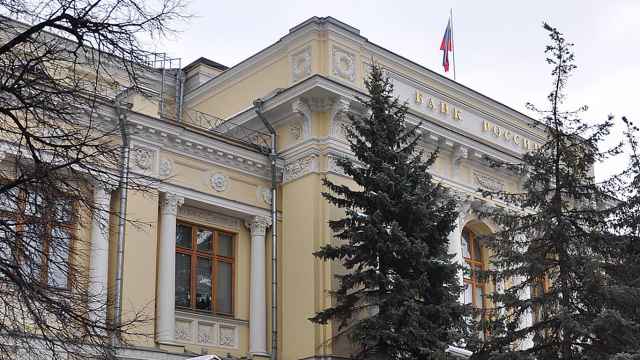The issue of changing the clocks in winter and spring was once again broached by high-level officials on Tuesday, with Liberal Democratic Party chief Vladimir Zhirinovsky saying a decision had already been made to restore the practice following the conclusion of the 2014 Winter Olympics.
"The decision has been made. After the Olympics we will change to daylight savings time," Zhirinovsky said at a State Duma session, Interfax reported.
Natalya Timakova, spokeswoman for Prime Minister Dmitry Medvedev, denied that such a decision had been reached, but Zhirinovsky's position is supported by other prominent parliamentarians, including the head of the Duma's Public Health Committee, Sergei Kalashnikov.
Kalashnikov told Interfax on Tuesday that his committee had prepared and submitted a bill restoring daylight savings time to the Cabinet, and he said he was confident that the proposed legislation would pass.
"The problem, I think, is so overdue that it is hard to say: 'I oppose.' Everyone understands this," Kalashnikov said.
He said that he did not rule out the possibility of the legislation being enacted before the Sochi Games, but the chances of that are slim. In October of last year, Deputy Prime Minister Dmitry Kozak, who is overseeing preparations for the Winter Olympics, said the broadcasting contracts had already been finalized according to the current calendar.
Russia has been operating under a permanent state of daylight savings since 2011, when then-President Medvedev decided that the country would change its clocks for the last time that March. Although the measure was initially well received, public opinion has increasingly turned against it, due partly to the dark winter mornings.
Kalashnikov has spearheaded efforts to redact the law. In 2012, he penned an open letter to Medvedev regarding citizens' growing dissatisfaction with the policy, which he said condemned "the majority of the country's population to stress, worsening health, [and] a heightened rate of injuries and economic penalties." He later submitted a bill to nullify the law in the summer of 2012, citing public health concerns.
Public health was Medvedev's justification for signing the law in 2011, as "the need to adapt is connected to stress and illnesses."
Kalashnikov's efforts were resumed in September 2013, when eight deputies representing the full spectrum of political factions in the Duma co-authored a bill to reinstate a seasonal changing of the clocks. On Sept. 20, they submitted the proposal for review.
For a country that covers nearly one-eighth of the world's landmass, the issue of time is an understandably precarious concern. In March 2010, Medvedev decided to eliminate two of Russia's time zones when the country switched to daylight savings time that year. The time zones of five of Russia's eastern regions were shifted to the west, making them one hour closer to Moscow.
Contact the author at [email protected]
A Message from The Moscow Times:
Dear readers,
We are facing unprecedented challenges. Russia's Prosecutor General's Office has designated The Moscow Times as an "undesirable" organization, criminalizing our work and putting our staff at risk of prosecution. This follows our earlier unjust labeling as a "foreign agent."
These actions are direct attempts to silence independent journalism in Russia. The authorities claim our work "discredits the decisions of the Russian leadership." We see things differently: we strive to provide accurate, unbiased reporting on Russia.
We, the journalists of The Moscow Times, refuse to be silenced. But to continue our work, we need your help.
Your support, no matter how small, makes a world of difference. If you can, please support us monthly starting from just $2. It's quick to set up, and every contribution makes a significant impact.
By supporting The Moscow Times, you're defending open, independent journalism in the face of repression. Thank you for standing with us.
Remind me later.





